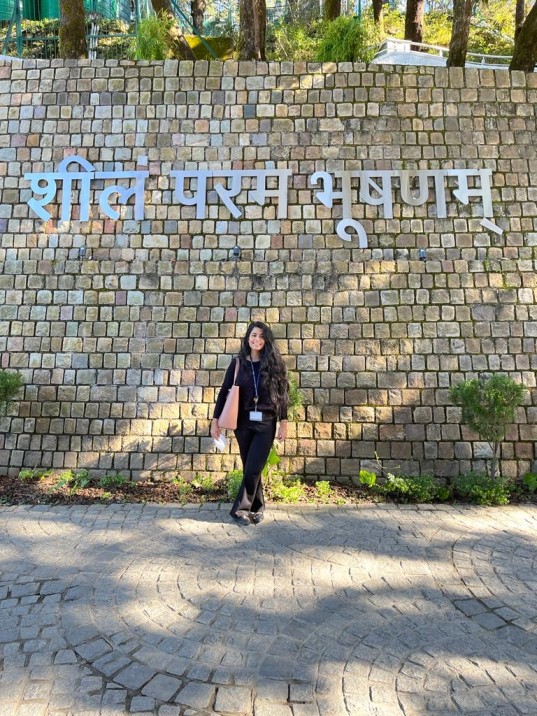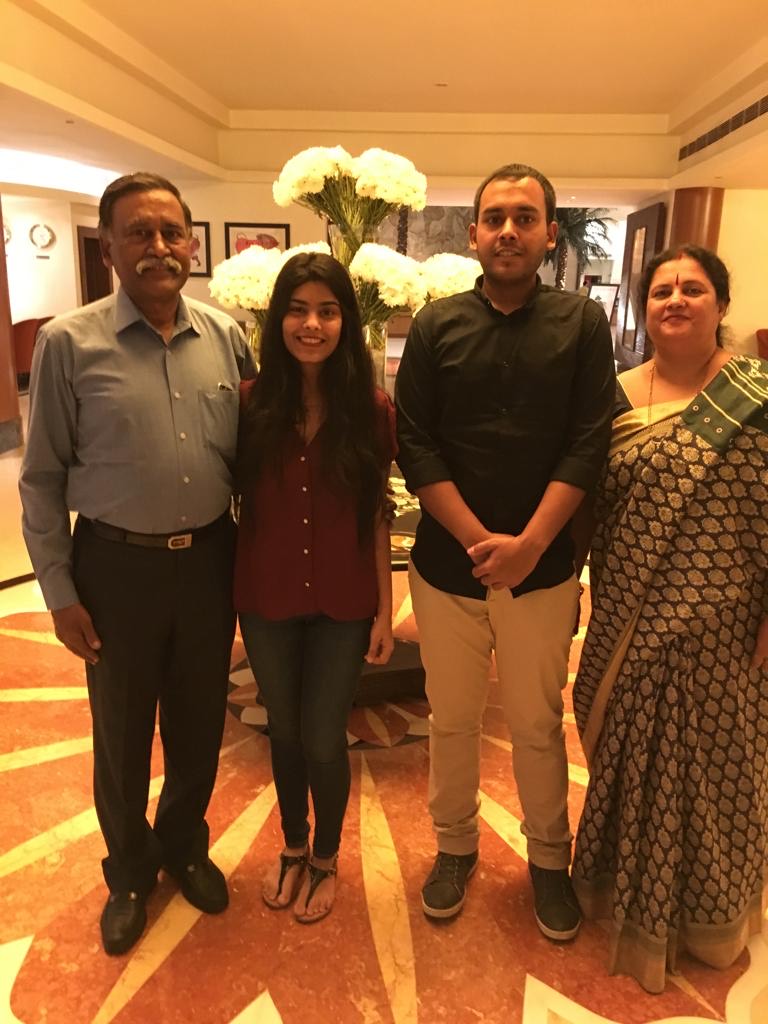IAS Officer Shares How to Use Previous Years’ Papers to Cover UPSC CSE Syllabus
IAS Officer Anisha Shrivastav secured AIR 66 in the UPSC CSE 2020. She shares how using previous years' papers helped her cover the vast syllabus.

Every Indian Administrative Service (IAS) that has managed to clear the examination has a strategy they adopted while preparing. For Hyderabad born and educated Anisha Shrivastav, using the previous years’ papers to cover the Union Public Service Commission’s (UPSC) Civil Service Examination (CSE) syllabus worked well.
Anisha secured an All India Rank (AIR) of 66 in the 2020 examination.
Speaking to The Better India, Anisha says, “After completing my graduation from Sriram College of Commerce (SRCC) in Delhi, I worked for a while before taking time off to prepare for the UPSC CSE. However, in my first attempt, which was in 2019, I felt severely underprepared for it.”
She started preparing for her second attempt armed with all the knowledge she gathered from her first attempt. “I felt way more confident and had spent time working on every mistake I made the first time around. In hindsight, I am glad I had that first experience. It made me stronger.”
Here are some of the strategies that worked for her:
1. Practice Makes Perfect:
Preparing for any competitive examination makes one believe in this adage – practice makes perfect. For Anisha as well the experience has been the same. “When I was preparing for the second attempt I made sure I got in a lot of practice work. As and when I would finish one part of the syllabus, I would attempt questions based on that part. That would help quick assessment,” she says.
2. Past Papers as First Port of Call:

“Looking at past papers is like drawing a ring and studying from that point of view. For example, a topic like climate change is vast and has various aspects to it. Studying it by looking at past papers will put things in greater perspective for one,” says Anisha. Doing this will help aspirants manage their time better and study topics that are important from an examination point of view.
3. Analyse Past Papers:
Aspirants must also analyse past papers well while preparing. Anisha says, “There are certain topics from which questions are asked year after year. A good analysis of the past papers will help aspirants find those patterns. This is a useful hack for both the prelims and the mains paper.” Sometimes there are questions that an aspirant might not cover even after studying from different sources, so past papers analysis is a must.
4. Find Your Comfort:
Anisha says that while she referred to previous years’ papers she did not actively solve each one. She explains, “I would not sit down for three hours and solve the paper. What I did was go over the answer in my head to every question asked. I would make notes for questions that needed me to make them, else I would just glance through and make mental notes.” Anisha also adds here that she made notes of and revisited questions that needed her to find deeper answers.
5. Timed Work:
Concerning approaching the questions, Anisha shares a rather interesting tip. She says, “When attempting the past papers always time yourself. Give yourself seven minutes to complete a 10-marker question and 11 minutes if it is a 15-marker. You have to work towards writing your answer within this time frame to maximise your chance of doing well.” This is what worked for Anisha and it would be prudent to find and set a time limit for yourself.
6. Speak it Out:

Given the sheer volume of data and statistics that aspirants need to remember while preparing, finding a technique to retain it all is important. For Anisha, speaking it out loud helped her retain it. She says, “Often after studying a topic I would discuss it with my parents over dinner. This would help reiterate the points and remember them. This was also a great way to revise without feeling the pressure of revision.”
7. Develop Your Own Understanding:
Aspirants must have an understanding of topics. Do not try to learn from notes made by others. “This is an examination that requires your input. Whether it is the notes you make or your understanding of a particular topic. Customise it to suit your own needs. Opt for coaching for subjects you feel it is needed,” she adds.
In conclusion, she says, “Enjoy the process. You have chosen to give this examination almost one year of your life – so soak it in. No matter what, all your learnings will always hold you in good stead.”
(Edited by Yoshita Rao)
If you found our stories insightful, informative, or even just enjoyable, we invite you to consider making a voluntary payment to support the work we do at The Better India. Your contribution helps us continue producing quality content that educates, inspires, and drives positive change.
Choose one of the payment options below for your contribution-
By paying for the stories you value, you directly contribute to sustaining our efforts focused on making a difference in the world. Together, let's ensure that impactful stories continue to be told and shared, enriching lives and communities alike.
Thank you for your support. Here are some frequently asked questions you might find helpful to know why you are contributing?













